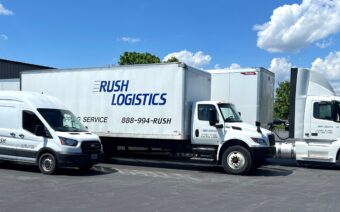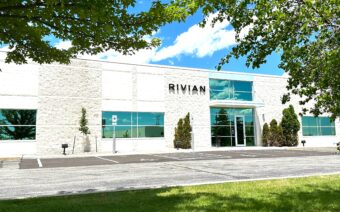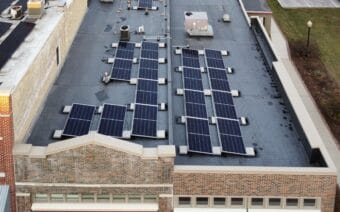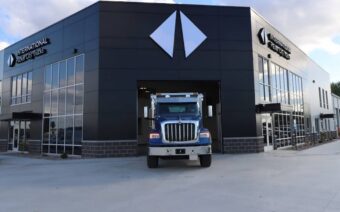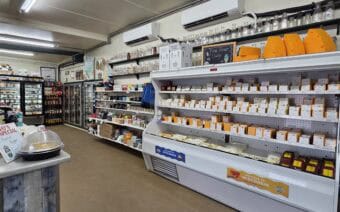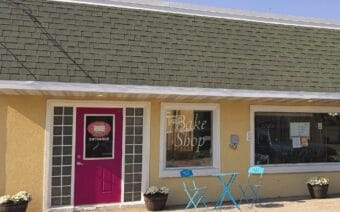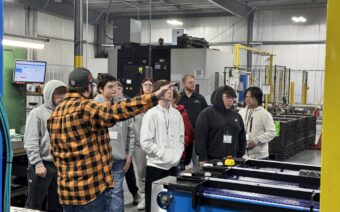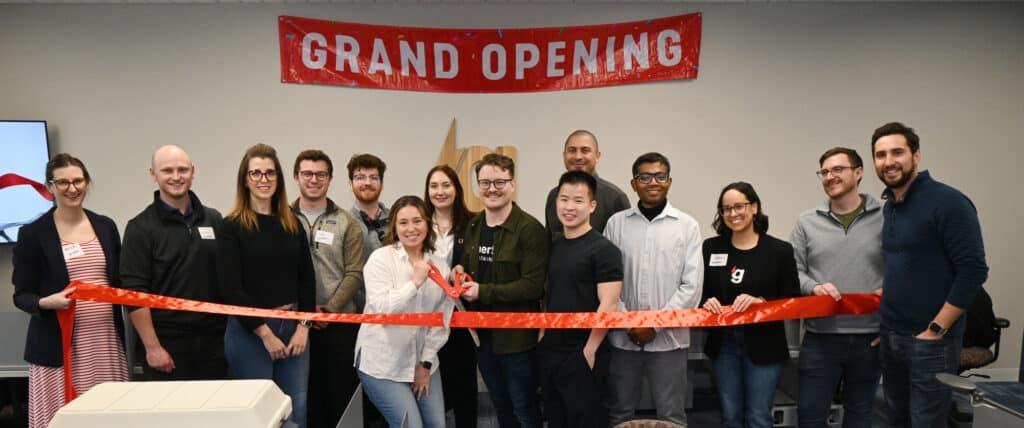
May 19, 2025
APPLETON – Appleton native Andrew Schmitz – managing director at gener8tor – said historically, his hometown has not been a haven for entrepreneurship.
“As a founder who started a company and grew a company here, I can tell you from experience that our start-up ecosystem is certainly not as mature as, say, a Madison, Wisconsin, or Chicago,” he said.
Schmitz said his efforts in starting a software company in 2022 saw him seeking entrepreneurial wisdom he simply couldn’t source in the Fox Cities.
“I was constantly looking for people I could connect with locally who have done this, who could give me advice, tell me when I’m wasting my time or where I should be focused, etc.,” he said. “I ended up spending a lot of my time as a founder going down to Madison.”
As fate had it, just after he had chosen to exit his company, Schmitz said a multifaceted opportunity arose, which would utilize his start-up knowledge, foster the entrepreneurial ecosystem Appleton had lacked and potentially change the future: to lead the U.S. Venture Sustainability Accelerator.
The accelerator program, he said, results from a partnership between gener8tor – a Madison/Milwaukee-based global venture capital firm – and U.S. Venture – an Appleton-based energy, transportation and sustainability solutions company.
Schmitz said he was hired by gener8tor later in 2022 to serve as managing director of the U.S. Venture Sustainability Accelerator.
“The motto at gener8tor is ‘Helping communities invest in their best and brightest,’” he said. “If that’s a start-up, an artist (or) a person looking to level up their career, these are the types of programs and people we can help.”
In his role, Schmitz said he’s tasked with being “the point person” and company recruiter for the accelerator program.
Per gener8tor.com, the program seeks a cohort of five sustainability- and mobility-related start-ups each year, and provides a $100,000 investment, mentorship and a network of resources.
“I try to find interesting companies for the program that fit our thesis,” Schmitz said. “Then I lead the investment process into these companies and then help them, hopefully, (to) grow through the program, and then support them post-program as well, as they need to connect with more funders or customers, etc.”
The accelerator program is presently amid its third cohort, which Schmitz said is “made up of companies doing truly exciting things in sustainability – from grid innovation to fleet electrification and tire recycling.”
Though he said the two previous cohorts were essentially guided remotely, this year the program has a new headquarters in downtown Appleton at Fox Commons, a mixed-use space located at 10 East College Ave.
“Founders are coming to Appleton from across North America and Europe to be a part of this program,” he said. “Our new Fox Commons office gives us a fantastic home base as we continue to build momentum here and serve as a hub for local entrepreneurs and global innovators alike.”
The 2025 start-up cohort
The current cohort for U.S. Venture Sustainability Investment Accelerator include:
- Arduro (Bala Cynwyd, Pennsylvania) – recycles end-of-life tires into new rubber using novel, low-cost, low-impact technology
- ElectricFish (San Carlos, California) – high-speed, battery-integrated EV chargers delivering backup power and energy market optimization
- Emobi (San Francisco, California) – accelerates EV adoption with the digital infrastructure that enables secure and fully automated EV charging across networks and vehicles
- E.V.E. (Dublin, Ireland) – SaaS platform helping industrial fleet operators plan and manage EV deployment
- Flux XII (Madison) – Grid-adaptive energy storage systems using innovative organic materials for next-gen batteries
Schmitz said he’s very excited about this cohort, noting these companies “are a bit further along than we have (had) in the past, on average” in terms of operations.
“Arduro, for example, has an operating manufacturing facility in Nova Scotia that they’re using to run demonstration products for customers,” he said. “ElectricFish is shipping units to major customers out of their (San Francisco) Bay Area manufacturing facility. Emobi has integrated with thousands of EV charging ports across North America. And E.V.E. is also just an incredible company, (with an) incredible founder – she’s traveled here from Dublin, Ireland, to be part of this program and to work with U.S. Venture on bringing her solution to fleets in the United States.”
Schmitz said with Flux XII, it was extra exciting for a company from Wisconsin to make the cohort.
“(Co-founder/CEO/Co-inventor) Patrick (Sullivan) is a Ph.D. graduate from (University of Wisconsin-)Madison, but working on a really important issue – how do we transition to what is now the cheaper energy source, which is renewables like solar and wind?” he said. “The big part of the puzzle here is storing electricity when the sun is shining, so that you can use (the energy) when it’s not (sunny). He’s got just some incredible IP (intellectual property) and breakthroughs in the flow battery space that we’re really excited about, and other investors are also really excited about.”
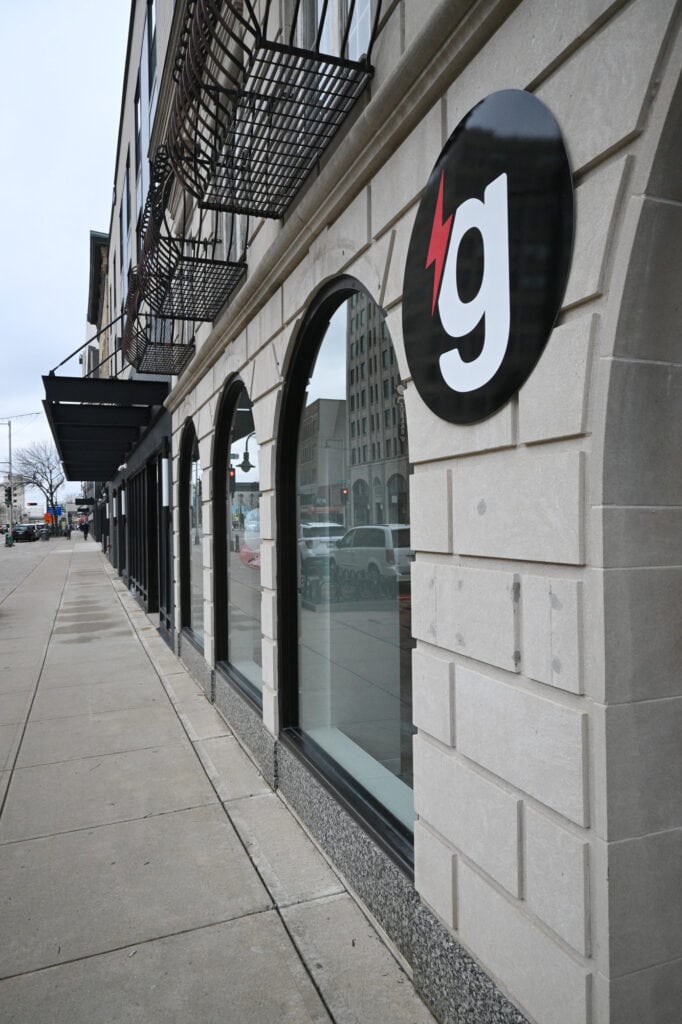
With such a range of start-ups, Schmitz said it’s not easy to summarize their full potential.
“Overall, (we’re) super impressed with this group of founders,” he said. “(We’re) really excited about their overall trajectory, what they’ve achieved so far and what they’re gearing up for as well.”
Acceleration
When it comes to finding five suitable start-ups for each of the program’s cohorts, Schmitz said “we try to not leave any rock unturned.”
From scouting various industry conferences, innovation-centric events and universities, to his constant networking efforts, Schmitz said the search covers “a wide gamut” of founders.
“I’ll meet them throughout the year, encourage them to apply and then we close our deadline typically in January every year,” he said of the process. “Then we review the applicants, and we will then invest into five of them.”
The review stage, Schmitz said, “can sometimes be a relatively quick decision,” and other times, it can take up to two months of reviewing and having conversations.
“A big part of what we try to do is when a start-up applies, if it’s relevant and passes some of the early relevancy sniff tests, per se, we try to get them connected with teams at U.S. Venture,” he said. “These are the experts in that particular, relevant field. We try to get them involved early, so then there’s an opportunity for the start-up to A., learn something from these experts, and then B., U.S. Venture can make sure that the start-ups can be a good fit, given there’s oftentimes a lot of technical stuff/expertise that we want to vet before we would make an investment decision.”
Involved as the process may be, Schmitz said the U.S. Venture Sustainability Accelerator has been well worth it for founders and funders alike.
Of the combined 10 start-ups from the program’s previous cohorts – Schmitz said there were several promising examples – each of which has raised more than $1 million.
Torev Motors, he said, has designed an electric motor that uses 50% less rare earth minerals.
Another from the first cohort, Schmitz said, is New Day Hydrogen, which is “building micro hubs for hydrogen refueling stations.”
“Certainly, they’re all hustlers, making the most out of everything,” he said. “We’re super proud to be part of their journey.”
Each cohorts’ journey, Schmitz said, starts with the 12-week accelerator program, which includes connection to 80-plus mentors for networking and strategy improvement, before shifting focus to connecting founders to investors.
However, he said by no means does the collaboration end there.
“gener8tor’s not in the business of just, ‘Hey, we’re going to rinse you through this program and then, you know, good luck,’” he said. “We’re constantly working with our portfolio companies and keeping in touch with them. Ideally, we want to see them go (and) grow their revenues – we want to see them potentially raise more capital, if they need (it), from other investors. We call that ‘follow-on investing’ – certainly something we track with each of our portfolio companies – but the goal is to help them become a big company.”
Post-program, Schmitz said the cohorts’ start-ups are “part of the family,” privy to opportunities to pitch to investors and find customers, conference series, virtual events and more.
Beyond the cohorts, he said, his work with gener8tor helps to build an entrepreneurial ecosystem by way of various events, such as a monthly series – in partnership with Lawrence University – featuring business founders telling their stories; and biweekly coffee hours “where any entrepreneur can come and just be with other entrepreneurs.”
Schmitz said fostering such a community helps the sustainability sector to compare notes, teach one another and overcome collective challenges like regulatory shifts and supply chains.
No matter the challenge, though, he said with the right messaging, enough ingenuity and steady persistence, progress is inevitable.
“We’re doing something that’s very difficult and takes time to build momentum, but the results are coming in, and it’s very, very rewarding,” he said. “Actually, in a smaller ecosystem like ours, it allows us to be even more intimate with the people who are really interested in taking the next step.”
Schmitz said gener8tor’s new Appleton office, as well as the excitement engendered by this year’s U.S. Venture Sustainability Accelerator cohort, represent solid footholds for those next steps.
“It takes time,” Schmitz said, “so you’ve just got to keep pushing the rock up the hill.”
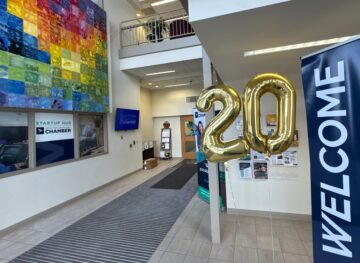 Celebrating 20 years of ‘growth, talent and impact
Celebrating 20 years of ‘growth, talent and impact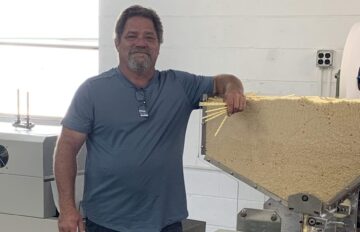 Cloveridge Converting expands into paper straw market
Cloveridge Converting expands into paper straw market


